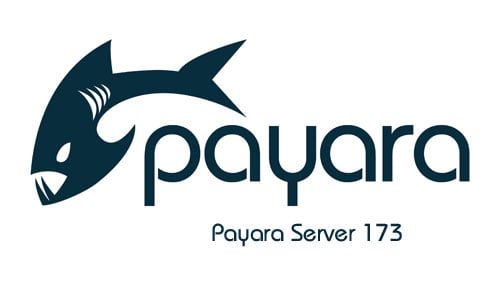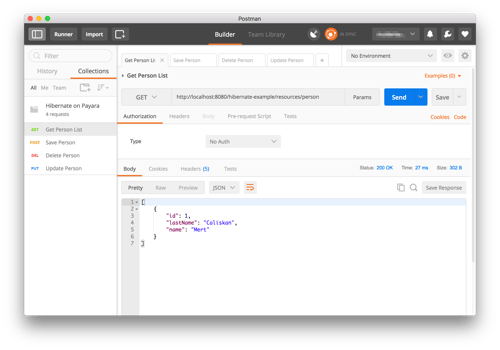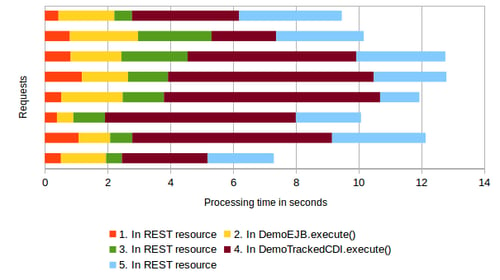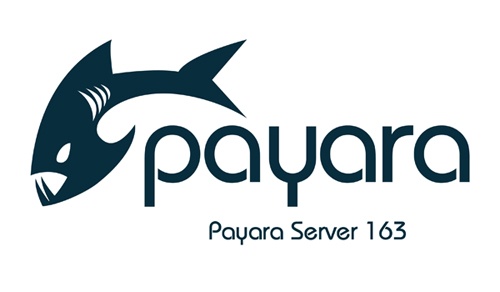Posts tagged REST (3)
Consuming a REST Service
Published on 07 Sep 2018
by Arjan Tijms
Topics:
REST,
Payara Server
|
0 Comments
A REST Service in Java EE can be created using JAX-RS. The contents of such service can be consumed using ordinary HTTP requests to a URL. URLs are typically kept simple and have a logical pattern, so it's easy to type them manually in e.g. a browser. This is different from SOAP, which essentially uses HTTP as well, but is designed to be rather complex and therefor making it not so easy to quickly test something in a browser.
Securing a REST Service
Published on 05 Sep 2018
by Arjan Tijms
Topics:
REST,
Security
|
1 Comment
If you're building a REST service, then that REST service will expose some kind of data or will allow some kind of interactions with a server. For instance, consider a Facebook REST service that allows you to retrieve your chat history. Naturally you don't want just anyone looking at that history, hence the need for security.
New Feature in Payara Platform 5.182: MicroProfile REST Client
Published on 16 Aug 2018
by Ondro Mihályi
Topics:
Payara Micro,
REST,
MicroProfile,
Payara Server 5
|
2 Comments
The 5.182 release of Payara Server & Payara Micro (Payara Platform) brings in MicroProfile 1.3. This introduces a couple of updates to some existing specifications, and three new ones: OpenTracing, OpenAPI, and Type-safe REST Client. In this blog, I’ll be covering our implementation of the Type-safe REST Client.
REST Monitoring in Payara Server
Published on 24 Aug 2017
by Matthew Gill
Topics:
REST,
JMX
|
5 Comments
The Payara Server 173 release included a technical preview of the REST Monitoring Service, which is a service to expose JMX monitoring MBeans over HTTP. As of Payara Server 174, this feature is no longer in tech preview.
One big problem with JMX is that JMX monitoring uses RMI (Remote Method Invocation), which can lead to a few nightmares if, for example, you have a firewall which blocks connections over RMI ports. The REST monitoring service in Payara Server now provides a service which will be very familiar to users of Jolokia in that it makes this monitoring data available over HTTP, making the data available in a more standard format (JSON) and accessible over a standard HTTP connection.
Using Hibernate 5 on Payara Server
Published on 22 Jun 2017
by Mert Caliskan
Topics:
Maven,
REST,
Admin,
Developer
|
9 Comments
Hibernate is the object/relational mapping tool that handles mapping of Java classes to relational tables and Java types to SQL data type. It’s a well-known framework in the Enterprise Java eco-system since it’s being actively developed for the last 16 years.
With this article, I’m going to show the ways of using Hibernate inside a sample application – source code available here – and deploy it onto Payara Server. I will be using the latest version of Hibernate, which is 5.2.10.Final at the time of writing.
Payara MicroProfile 1.0 Released
Published on 19 Sep 2016
by Steve Millidge
Topics:
Payara Micro,
Microservices,
CDI,
REST,
MicroProfile
|
0 Comments
Back in June we announced MicroProfile with RedHat, IBM, Tomitribe, LJC and SouJava and Microprofile.io was launched as a location for community collaboration on Enterprise Java Microservices. In the announcement each of the vendors promised to have a MicroProfile runtime ready and available in time for JavaOne. Well after much beavering away here in the Payara Engineering team we have just pushed onto Maven Central our 1.0 release of Payara MicroProfile.
Request Tracing Service in Payara Server & Payara Micro
Published on 12 Sep 2016
by Ondro Mihályi
Topics:
What's New,
REST,
How-to,
Admin,
diagnostics,
request tracing,
Notifier
|
2 Comments
Have you ever wondered whether your application is slow to respond to requests? Which requests take the longest to respond to? And what you can do about it? Payara Server aims to provide the best tooling you would need to identify performance issues, identify their causes and help you solve them. One part of this tooling is the new Request Tracing service, available in Payara Server and Payara Micro from version 163 as a technical preview.
Payara Server in Production - Quick Tip
Published on 02 Sep 2016
by Mike Croft
Topics:
Production Features,
REST,
How-to
|
0 Comments
TIP: Don't deploy any apps to the DAS in production!
Why?
As is the case with all my stories, this one began at a customer site. They had an old app they were migrating from GlassFish 3.1.2 to the latest version of Payara Blue. They'd called me in because they wanted to benchmark performance of the new version of Payara Blue on AIX against their existing GlassFish 3.1.2, also on AIX, as well as against a recent version of JBoss (I'm unsure of the version, though I know it was deployed on Windows).
What's new in Payara Server 163?
Published on 16 Aug 2016
by Mike Croft
Topics:
What's New,
Payara Micro,
Hazelcast,
CDI,
REST
|
6 Comments
As we enter the third quarter of the year, that can only mean one thing: Payara Server 163 is here! With this release, we’ve managed to cram in 44 bug fixes, 34 enhancements, 6 new features and 6 component upgrades. One of these new features is the tech preview of our new Request Tracing service, which I’ll explain in more detail below.








